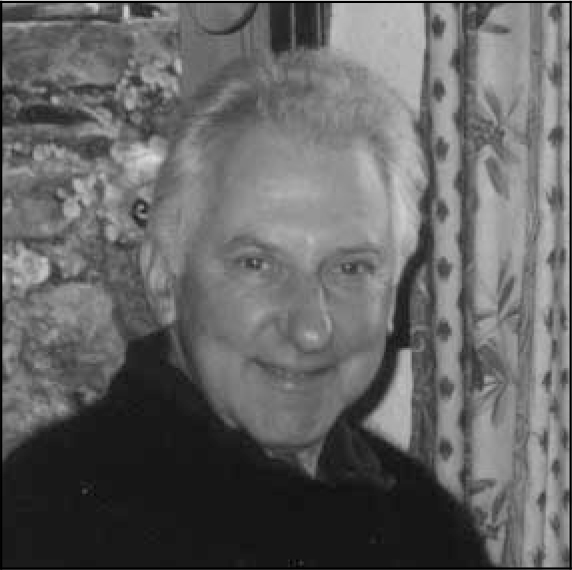
Formerly Consultant in child and adolescent psychiatry at St George's and Nightingale hospitals, London
Harold Caplan's brilliance as a leading child and adolescent psychiatrist and physician-scientist was matched by his love and profound understanding of music, theatre, good wine, exquisite food and travel. His insatiable passion for golf completes the requisite qualities of a modern Renaissance man.
But what most endeared Harold to his patients and many friends was the fact that he was the kindliest and gentlest of men. His razor-sharp mind and acerbic wit were frequently directed at the quality of a wine, overdone steak or errant London bus, but never at any person. He would stretch his patience beyond breaking rather than comment adversely on any fellow man.
Harold's unique ability to interact with and befriend people is reflected by the diverse background of men and women stunned and deeply saddened by his death, from cancer, on 7 June 2003. Indeed, Harold's first wedding in the 1960s was attended by people from all walks of life, including the first team of the Charlton Football Club for which Harold served as doctor and mentor.
Harold Leslie Caplan was born in Melbourne, Australia, on April 1, 1938, to an immigrant family of modest beginnings in shirt manufacturing. Harold was educated at Brighton Road State School, Mentone Grammar, Melbourne High School and Melbourne University. His choice of high-school subjects, Latin, French and English Literature as well as the first three fundamental sciences and maths, set the trajectory for Harold's career. Like Anton Chekhov and Arthur Conan Doyle, Harold was torn between medicine and literature. And so, at Melbourne University, he read both with distinction, graduating MBBS in 1960 and BA with a major in English Literature in 1966.
Psychiatry offered the perfect hybrid between medical science, literature and the nature of mind that Harold wished so desperately to explore. After acquiring the MRACP, Harold set sail as ship's doctor for the ‘Sceptre'd Isle’, where he became senior registrar to Bob Kendell at the Maudsley Hospital (Institute of Psychiatry), London. He graduated MPhil (Psychiatry) in 1970, in 1973 was promoted to FRACP and, in 1971, foundation Fellow of the Royal College of Psychiatrists. Between 1974 and 1994, Harold held consultant appointments in child and adolescent psychiatry at St George's and then University College Hospitals, London.
Harold made three seminal contributions to psychiatry. First, and perhaps most important, were his landmark prospective studies on the effect of maternal post-natal depression on the cognitive and emotional development of the child. Second, he showed that, in contrast to perceived wisdom, controlled circulatory arrest for a period of 60 minutes does, in fact, adversely affect the psychological development of children after cardiac surgery. His 1983 paper in the Journal of Thoracic Medicine concluded, ‘We question the accepted “safe” limit of circulatory arrest of 60 minutes’ - not the first nor the last time that Harold challenged uncertain dogma. Third, he carried out and published some of the few rigorously designed and controlled studies on the efficacy of psychotherapy.
But, for Harold, the patient, rather than science, was paramount, and perhaps one of the most distressing days in his mercifully brief terminal illness was when he bade farewell to his patients. In the 90s, himself a trainee at the Anna Freud Centre, Harold played an active role in supervising trainees in psychotherapy, to which he devoted the last decade of his life.
This necessarily arid curriculum vitae does little justice to the great Harold, who I first met in the rough and tumble of Brighton Road State School, and who was widely loved for his friendship, warmth, wit and joie de vivre. But, which of the numerous tales of Harold Caplan would best add the missing third dimension? The emotional ‘Sturm und Drang’ before, after, and again on the morning after, a Wagnerian opera; his meticulous selection of the most suitable burgundy or claret to complement a fillet mignon; interminable debates on the nature of mind; long walks and talks on a Cornish beach; jousts over billiards, cards or a differential diagnosis; his repartee and adroit turn of phrase; his passionate defence of Sigmund Freud? All or none - a man is of course much greater than the sum of his parts. Harold's imprimatur lives on, in many diverse ways, in the minds of all who knew him. Not renowned for punctuality - on this occasion Harold's family, patients and friends mourn the fact that he left us far too soon.
Harold Caplan is survived by his first wife, Betty (marriage dissolved in the 1980s) and their daughters, Nina (an accomplished journalist) and Danielle, his second wife, Wendel, and his brother Maurice.



eLetters
No eLetters have been published for this article.